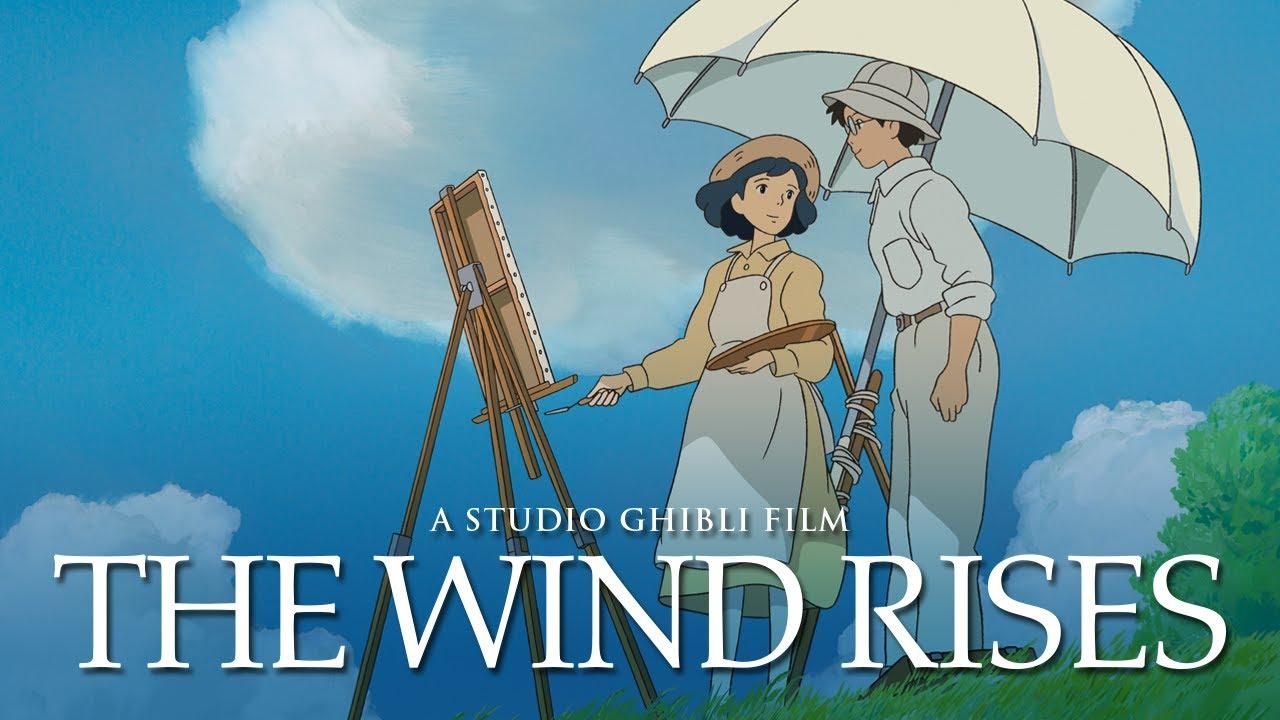It goes without saying that Hayao Miyazaki is up there with Walt Disney in terms of his success and influence on animation. Spirited Away, Princess Mononoke, and My Neighbor Totorro are just three examples of his massive appeal not just in Japan but in the West as well. Miyazaki can be credited with bringing the genre of anime eastward, telling a great story while conveying beautiful imagery and themes all at the same time. These are just some of the many factors that makes his retirement from cinema something especially tragic. That all being said, I had the pleasure of experiencing his final film on Sunday, The Wind Rises. While not the prototypical Miyazaki piece, it stands apart from his other works in an awfully unique and powerful way.
The Wind Rises is definitely not your regular Miyazaki film in the respect that this time he has decided to effectively make an animated biopic detailing the life of Jiro Horikoshi, a famous aeronautical engineer from the World War II era. However, despite not being a typical Miyazaki film, many of the themes present in his other other films make their way here. Unlike Spirited Away or Howl's Moving Castle we are not enveloped into a world of Miyazaki's design. Rather, through immense animation detail we are taken to a largely romanticized version of pre-World War II Japan, unspoiled and largely innocent. The film starts with Jiro as a young boy, making up his mind to become an aeronautical engineer. Frequently we are taken into the young Jiro's mind and into his dreams as we're frequently visited by famous Italian engineer Caproni. The dream sequences are the best parts of the film as Miyazaki is allowed to indulge us in the zaniness and the freedom that his other movies have. In addition to Jiro's dreams we see him play out his life in a way that almost represents a Japanese version of the movie Forrest Gump. In the same way that Forrest finds his way into almost every significant American event that happens in his lifetime, Jiro seems to be present for several extremely important Japanese events. The Kanto earthquake of 1923, the tuberculosis epidemic, the Great Depression, and World War II are all depicted here, each event shaping Jiro's life and painting a picture of what Japan was before the war left it in ruins. The characters frequently reference that the world outside is burning while this pristine depiction of Japan remains untouched.
 |
| Jiro's dream sequences are grand spectacles which brings the film's core premise to the forefront |
While The Wind Rises is a beautifully made film, it struggles with focusing on certain plot lines. For example, the driving force of the film really should be Jiro's struggle to come to terms with the world around him. However, the film struggles mightily when it brings in his love interest Naoko. By the time the film ends it is left unclear as what exactly her importance to the film was. Perhaps their love was indicative of how Jiro could find something pure and idealistic in a cruel world. However, their plotline is rushed and never feels like it reaches much of a conclusion. The film flip-flops from scenes with Naoko and Jiro to Jiro's work on planes and then back again and it feels like two different worlds that we're being dragged in an out of without much time to appreciate either. Perhaps this was Miyazaki's intent, perhaps not, but either way it felt that the film was trying to balance two different plot lines with little effect.
 |
| The Wind Rises is a beautiful balance of both idealism and cynicism |
Overall, The Wind Rises is a worthy film to end the illustrious career of Miyazaki and a very fitting one at that. It seems right that Miyazaki end his career with a film raising deep philosophical questions about the world at large and the Japanese identity. Some of those who have seen Miyazaki's past films may be a little disoriented at first by the different tone and setting that he takes in this film. With a change in perspective however, it's clear that Miyazaki has created a masterpiece of a film that will leave you with several ideas to think about as you leave the theater. Even if the plot is sometimes unfocused and the dialogue stilted, we realize that there's something overarching here that's at times greater than the sum of it's parts. At times cynical but always remaining optimistic, The Wind Rises is an animated tour de force.
My Score: 4.5/5

No comments:
Post a Comment